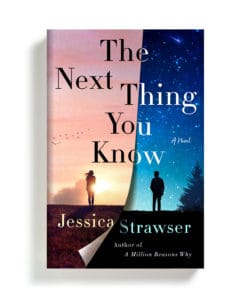By some estimates, we spend a third of our lives at work.
Let that sink in: A third.
No wonder it’s so important to at least try to love what we do. And no wonder so many of us switch gears along the way.
Like it or not, our jobs help to shape who we are.
So it is for fictional people too.
In some novels, a character’s job is a footnote, a distraction from the real plot—which is happening at home, or off on some holiday, vacation, or adventure. In others, the job is central: Think medical dramas, police procedurals, legal thrillers, workplace romances.
In both cases, we can enrich our stories by giving extra thought to what our characters do all day. Consider:
- What is your character naturally good at?
- What has she worked really hard to get good at?
- What is she comfortable doing at work?
- What makes him feel capable, in charge, empowered?
- What makes her feel insecure, uncertain, unprepared?
- How does the workday carry over at home?
- What is he uncomfortable doing, but must do anyway?
- What is she still learning?
- Why does he do this job? What sort of person might be drawn to this work?
- What does she find herself thinking about at the end of a workday—not the minutia, but the bigger picture?
- Who is her favorite coworker, and what kind of boundaries does she have (or not have) between work and her personal life?
- Who is his mentor?
When Your Character’s Job Is the Premise
 My new novel, The Next Thing You Know (coming March 22!), centers on an end-of-life doula who finds herself at the center of scrutiny after the suspicious death of a high-profile client, a cult favorite musician who’d disappeared from the public eye.
My new novel, The Next Thing You Know (coming March 22!), centers on an end-of-life doula who finds herself at the center of scrutiny after the suspicious death of a high-profile client, a cult favorite musician who’d disappeared from the public eye.
If you’re thinking, an-end-of-who what-a? I’m sure you’re not alone—so my early chapters had a big job to do. We don’t meet our doula waking up or out on the town. We meet her in action. We see for ourselves how and why terminally ill clients hire her to help them make peace. And we know, right away, that the client in question wasn’t just a paycheck to Nova. She loved him. And in her own way, she loves them all.
If your character, like mine, has a profession that people are less familiar with, you’ll need to do your research—and blend it into the story as naturally as you can, immersing them in that world without hitting them over the head with the details.
When I was looking for examples of how other novelists do this well, I found many at the other end of life: Midwives by Chris Bohjalian, The Midwife’s Confession by Diane Chamberlain, The Secrets of Midwives by Sally Hepworth.
Find your own comp titles, and when all else fails, be creative.
When Your Character Is One of Many
We’ve all raced through mysteries filled with detectives, lawyers, and doctors. We’ve all gotten lost in romcoms about preschool teachers and bookstore clerks. But your character is more than an archetype—right? So even if your reader is coming to your story with a good frame of reference, that doesn’t let you off the hook.
Ask yourself: What about your character’s approach to their job sets them apart?
In The Golden Couple, the new thriller out this March from Greer Hendricks and Sarah Pekkanen, we meet a therapist who has lost her license—but interestingly, that’s fine with her, and her clients in couple’s counseling too. She prefers to be freed up to use unconventional methods. She makes a lot of big promises… as she does to the golden couple in the title. But what happens if she can’t deliver?
In Katherine Center’s Things You Save in a Fire, we meet one of the only female firefighters in a profession dominated by men. If you’ve never thought about the challenges that would present—logistically, socially, romantically—Center makes sure that from the very first page, you will now.
Are you fleshing out a character with an interesting job? One you’ve done yourself, perhaps, or always wanted to do? Join our discussion on Facebook.





